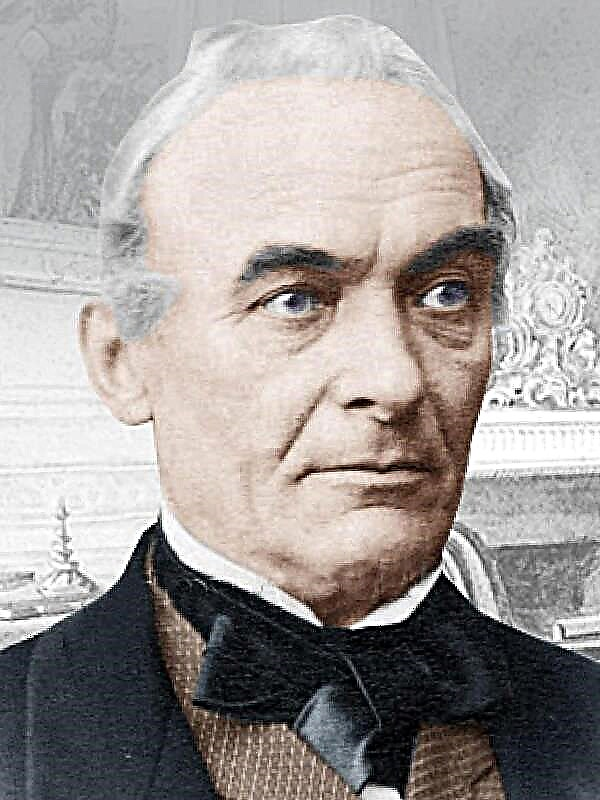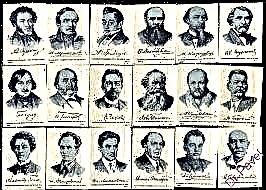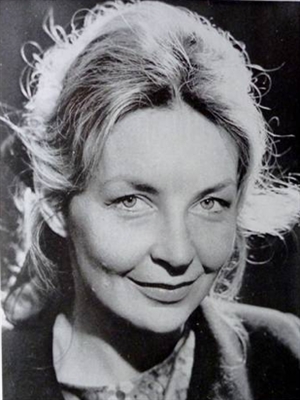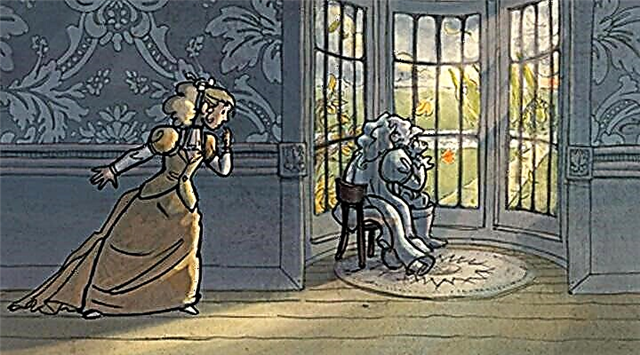: A man kills his family because of an inheritance with the help of a poison stolen from a famous explorer of Africa. The researcher, in love with the man’s sister, takes revenge for the deceased by executing the killer with the same poison.
Sherlock Holmes with his friend Dr. Watson rest in one of the villages of Cornwell. Holmes made friends with a local priest, who rents a room, Mr. Mortimer Trigennis - a wealthy man, but unsociable and sad.
Mortimer's family lives in the village: two brothers and a sister. One evening, Mortimer came to visit them, they played cards, drank tea. He left them at the beginning of the eleventh. No one else entered the house, though it seemed to Mortimer that bushes were moving outside the window, as if someone was sitting in them. The next morning, the brothers and sister were found in the same poses at the table, the sister was dead, and the brothers went crazy. All three had an unimaginable fear on their faces. Nothing was stolen, all things were in perfect order. The housekeeper who entered the room in the morning became ill, and she opened the window.
The great detective undertakes to investigate this matter. He visits the room in which the tragedy occurred. He is interested in the fact that in warm time the family lit a fireplace. The tragedy occurred a few minutes after Mortimer left.Holmes can’t say anything more.
In the evening, the famous explorer of Africa, Dr. Leon Sterndale, a distant relative of the Trigennis family, visits Holmes. On the way to Africa, he received a telegram from the priest, threw everything and returned. Sterndale wants to know from the great detective the details of what happened.
In the morning, Mortimer Trigennis is found dead. He died just like his sister, sitting at the table. An expression of horror froze on his face. The air in the room was incredibly suffocating and stale. In the morning the maid entered the room, and she became ill.
Holmes examines the room and the space under the window. After examining the lamp, he scrapes off a little soot and puts it in an envelope.
Having bought the exact same lamp, Holmes invites Dr. Watson to take part in the experiment. In both cases, there is something in common: a choking atmosphere in the room and something burning - either a fireplace or a lamp. Consequently, some substance was burning that poisoned the atmosphere. Taking a little soot, Holmes puts it on a lighted lamp. After some time, friends feel a heavy, sickening smell, the mind is troubled, they have terrible ghosts. Watson makes an effort, grabs Holmes's hand and pulls him out of the room. Holmes sincerely regrets that he decided on such an experience and involved his friend.
Recovering, Holmes discusses the situation with Watson: in the first case, Mortimer Trigennis was a criminal, in the second - a victim. The tragedy broke out immediately after his departure, therefore, he could throw powder into the fireplace and think that someone was in the garden to put on a false track.However, the great detective presents the charge with the murder of Trijennis to Dr. Sterndale.
Realizing that Sherlock Holmes knows everything, Sterndale admits his deed. She and Mortimer’s sister loved each other for many years, but could not get married, since Sterndale was married and could not divorce his wife. The priest was initiated into their secret. Mortimer quarreled with his family over money, but then everything worked out.
Once, the doctor brought poison from Africa extracted from the root of the plant “Devil's Foot” and told Mortimer that this poison affects the human nervous system. Mortimer questioned in detail about the poison and, having improved the moment, stole it. Having learned from the telegram that his beloved had died, Sterndale immediately returned and realized whose hands it was. Without hesitation, he decided that Mortimer should share the fate of his family. Now he intends to permanently settle in Africa. Holmes is not going to bother him. The great detective never loved, but if his beloved suffered the same fate, he probably would have done the same.












